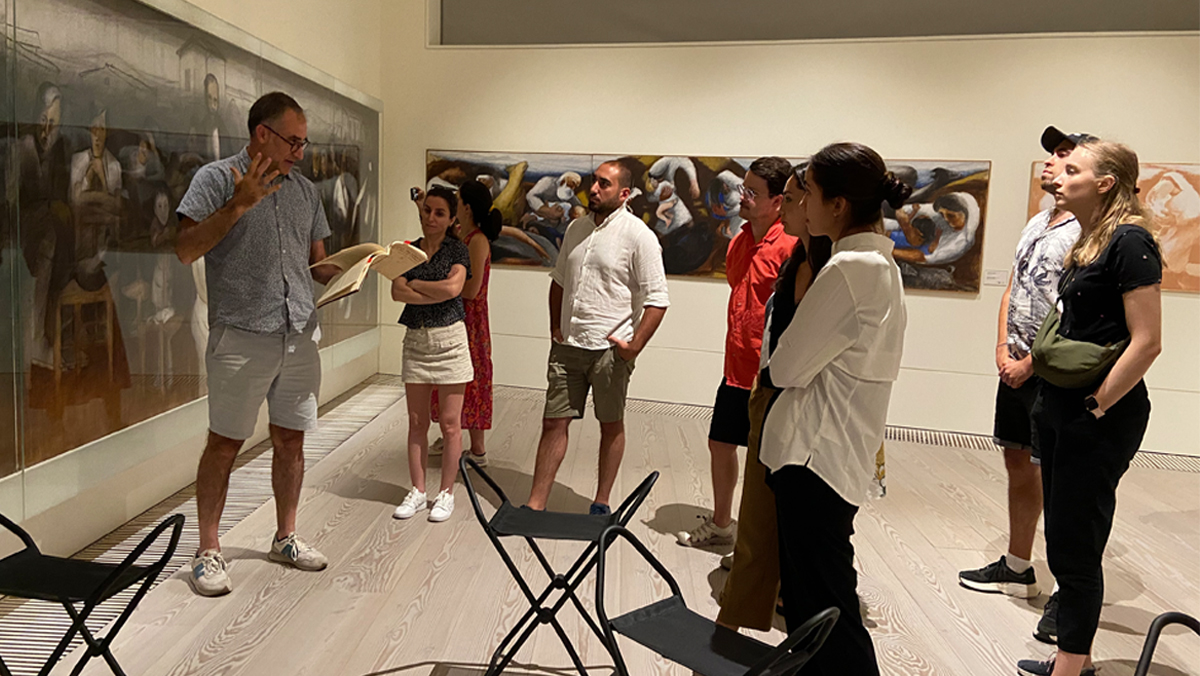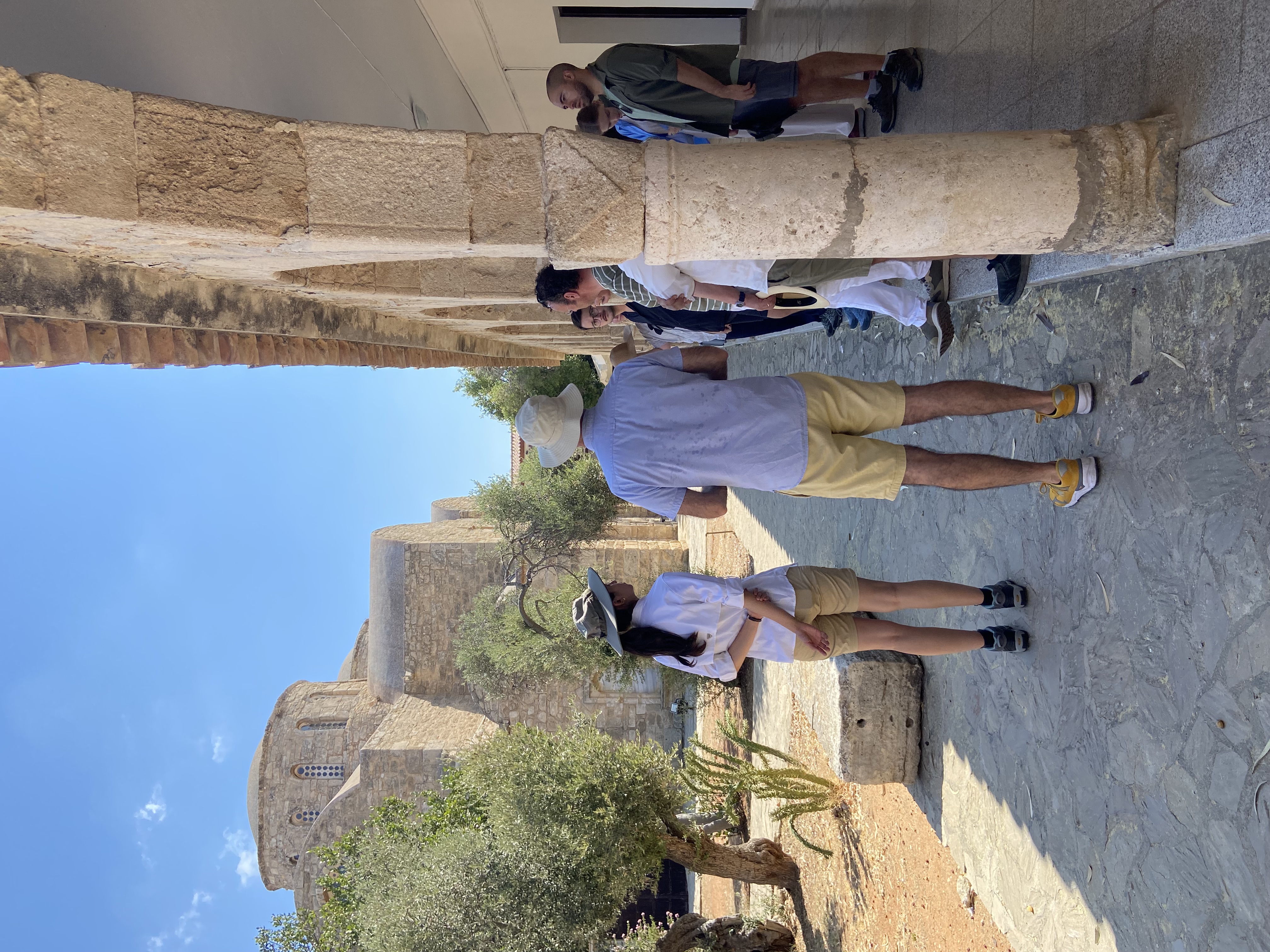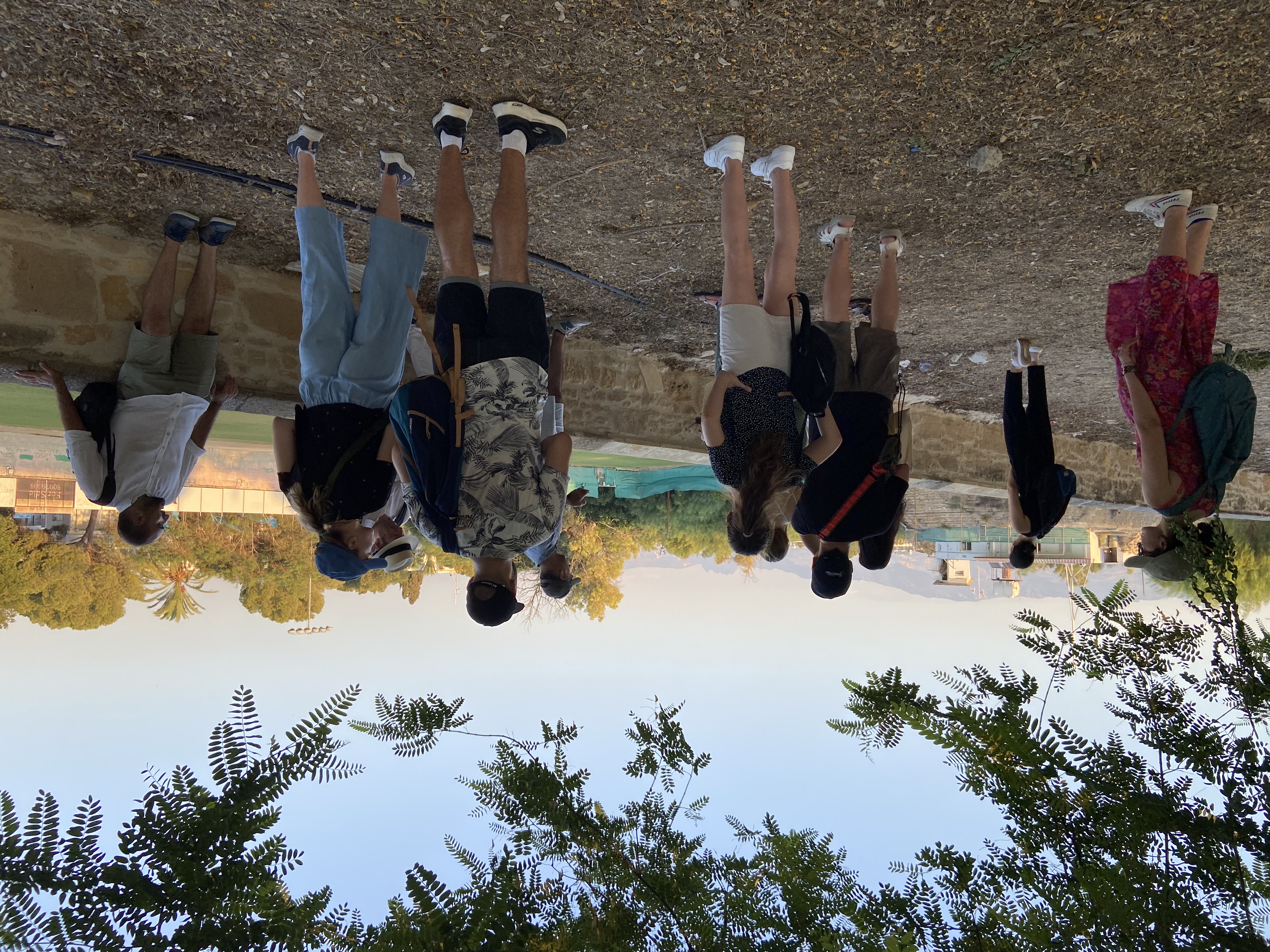Columbia University and the Cyprus Institute Co-organize Study Seminar in Cyprus
In the end of August 2024, Columbia University’s Center for the Ancient Mediterranean co-organized with the Cyprus Institute a week-long study trip and discussion at key heritage monuments across the island of Cyprus with a particular focus on the Late Antique, Byzantine and Medieval periods.
Led by Holger Klein (Columbia University) and Nikolas Bakirtzis (Cyprus Institute), a group of ten graduate students visited sites, monuments and museums across Cyprus. Supported by the Cyprus Institute’s Graduate School, seminar participants visited the Cyprus Institute and the School’s facilities. They were also introduced to projects and work related to the study and documentation of the Late Antique, Byzantine, Medieval and Early Modern monuments of Cyprus. Students with backgrounds in classical languages, art history, archaeology, and architectural history each brought their unique perspectives to discussions throughout the trip. “The seminar trip was a wonderful opportunity to engage with graduate students from different academic backgrounds, each focusing on various research topics, as we explored the monasteries and archaeological sites of Cyprus,” said Soodabeh Sajadi, a PhD student and conservator from the Cyprus Institute examining of the technical processes of conservation in the Mediterranean world.
“Engaging with graduate students from various disciplines and backgrounds, all bringing their perspectives and unique approaches, was incredibly valuable,” added Mehmetcan Soyluoglu, a PhD candidate and dendro-archaeologist at the Cyprus Institute. “Even the discussions that took place on the bus rides — where we unpacked our ideas and exchanged insights — became moments of intense learning and collaboration.”
A key element of the seminar was the series of presentations given by students at each site. These overviews provided key historical context for those unfamiliar with Cypriot cultural heritage, fostering group conversations across disciplines and new insights for those working on the presented monuments and materials. “Though I had been familiar with the landscape we visited, this experience offered something new,” said Soyluoglu. “Our discussions at each site were truly unique and enriching. They wouldn’t have happened with any other group than this one.”
“Getting to talk about my research with a new group of people gave me the opportunity to reframe and recontextualize both the icons I’ve studied and the technical data I’ve collected,” said Nicolette Levy, a PhD student at the Cyprus Institute working on an art historical study of artists working in Byzantine and Latin Cyprus. “I got such great feedback from other art historians as well as people working outside my field of study, which is so important for the kind of interdisciplinary scholarship we produce at the Cyprus Institute.”
The international backgrounds of the participants have also helped to create a global scholarly network, one that the Cyprus Institute is more than happy to maintain. “Professionally, the seminar fostered the creation of networks that will be long-lasting,” said Soyluoglu.
“The Cyprus Institute has such a strong presence in the EMME region and Europe, especially in the field of cultural heritage,” added Levy. “It’s great to build more relationships with American scholars and organizations as well. An institution like Columbia University, which is so embedded with the cultural fabric of New York City, is a fantastic resource for us as students and future heritage professionals.”
“As someone coming from quite a different educational system in the Middle East, it was particularly rewarding to exchange ideas with scholars from the West,” said Sajadi. “The seminar allowed us to share our thoughts on common topics and broaden our academic horizons.”


